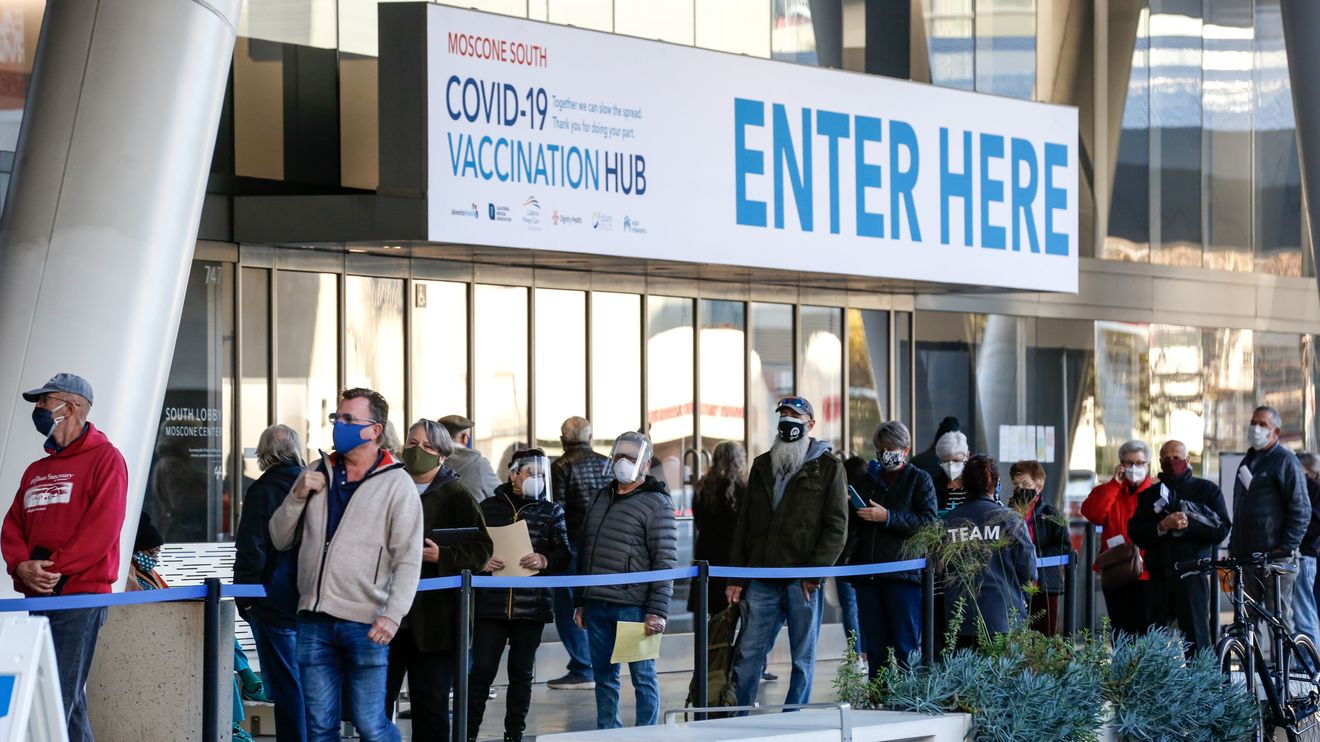
Politics, race and religion are only one side of the coin when it comes to predicting who is more likely to hold off on getting coronavirus vaccines.
The other side of the coin is an individual’s financial-risk preference, according to a report published this month in the Social Psychological and Personality Science journal by two University of Chicago researchers and one Vanderbilt University researcher.
Their findings: High-risk, high-reward individuals are more likely to get vaccinated.
Understanding why individuals are hesitant to get vaccinated is crucial, especially now that everyone above 16 years old is eligible to receive a dose.
In order to reach herd immunity in the U.S., Anthony Fauci, the director of the National Institute of Allergy and Infectious Diseases, has said that 70% to 85% of the population must be vaccinated.
If those levels are achieved in the next couple of months, the U.S. should start to see a return to normalcy by the fall, he said.
“ High-risk, high-reward individuals are more likely to get vaccinated. ”
Currently, 26% of the U.S. population is fully vaccinated while 40% have received at least one dose, according to data from the U.S. Centers for Disease Control and Prevention.
Encouraging more people to get vaccinated may ultimately boil down to marketing.
The research, which is based on weekly surveys conducted from June to December with more than 34,000 respondents, suggests that risk-averse individuals respond better to messaging that highlights the social benefits of getting vaccinated as opposed to stressing how rare serious side effects are from vaccines.
That includes Johnson & Johnson’s JNJ, +0.21% single-dose vaccine that was recently paused to investigate eight cases of severe blood clotting out of more than 7 million people who received the shot in the U.S.
“This occurs because the messaging focuses attention on the vaccine’s rewards (immunity for self and others), resulting in increased weight on these rewards during decision-making,” the report states.
“While vaccines are created to minimize risk from illness, we find that individuals tend to view getting them as risky,” said Abigail Sussman, a marketing professor at Chicago’s Booth School of Business and an author of the report.
“Our findings suggest that government agencies or health-care systems could increase vaccine take-up either by effectively communicating the low risk profile of COVID-19 vaccines or by drawing attention away from these risks.”











